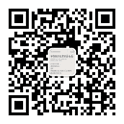| 基金项目:北京协和医学院本科教学改革项目(2020zlgc0110) |
|
| 摘要点击次数: 1425 |
| 全文下载次数: 468 |
| 中文摘要: |
| 目的 通过师生双角度评估临床及转化医学导师胜任力现状的调查,为导师胜任力的师资培训提供依据。方法 选取北京协和医院临床及转化医学导师121人,以及临床医学博士后170人作为研究对象。采用中文版导师胜任力评估量表,从保持有效沟通、建立一致的预期和目标、评估学生、培养独立性、尊重多样性、促进学生职业发展6个维度26项条目,由临床及转化医学导师和临床医学博士后通过李克特量表(Likert scale)双角度评估导师胜任力。同时,调查临床及转化医学导师的构成和导师培训需求。应用SPSS 25.0软件进行t检验。结果 70.0%(119/170)的临床医学博士后认为导师指导非常有帮助,78.5%(95/121)的导师认为有必要开展导师培训。导师胜任力方面,临床博士后对导师的评价明显高于导师自我评价[各条目总分(162.35±23.59) vs. (154.80±19.81),P<0.01]。临床博士后和导师对26项胜任力条目评价的优秀率分别为100.0%(170/170)和46.3%(56/121)。师生共同认为在建立基于信任的关系、激励学生方面做得较好,但在考虑可能带入到导师/学生关系中的偏见等方面存在不足。结论 前临床及转化医学导师具备良好胜任力,但仍存在较高的导师培训需求,需结合导师胜任力开展有针对性的导师培训和建立导师评价体系,以完善和提高医学人才培养体系建设。 |
| 英文摘要: |
| Objective To investigate mentor-mentee dual evaluation of the current status of mentor competency of clinical and translational research mentors, and provide the basis for mentor training focused on the mentor competences. Methods A total of 121 clinical and translational research mentors and 170 mentees from Peking Union Medical College Hospital were enrolled. The Chinese version of the Mentor Competency Assessment (MCA) questionnaire was used to evaluate the mentor competency, including maintaining effective communication, aligning expectations, assessing understanding, fostering independence, addressing diversity, promoting professional development total 6 parts with 26 sub-items. The Likert scale was used to quantitatively evaluate the clinical and translational research mentor competency by mentor-mentee dual evaluations. And the composition and training needs of clinical and translational research mentors were investigated. SPSS 25.0 was used for t-test. Results Seventy percent (119/170) of mentees considered the mentor guidance was very helpful, and 78.5% (95/121) of the mentors considered it necessary to carry out the mentor training. The mentee evaluation of mentor competency was significantly higher than that of mentor self-evaluation [total score (162.35±23.59) vs. (154.80±19.81), P < 0.01]. And the excellent rate of 26 sub-items by mentees and mentors were 100.0%(170/170) and 46.3%(56/121) respectively. The mentors and mentees shared the agreement of the strengths on trust-based relationship and encouraging mentees, and weaknesses on taking into account the possible prejudices in mentor-mentee relationship. Conclusion The clinical and translational research mentors have already had good competences, but mentor training is still highly warranted. It's expected that to carry out targeted mentor training and assessment according to the mentor's competences will help to improve the construction of the medical talents training system. |
|
查看全文 查看/发表评论 下载PDF阅读器 |
|
| 关闭 |
|
|
|
